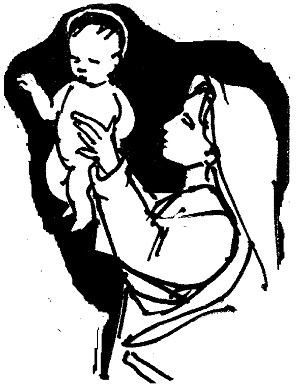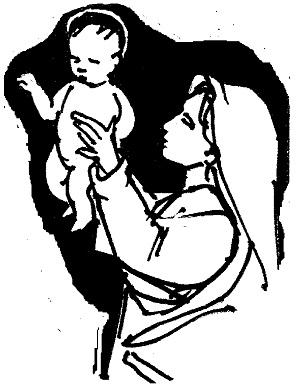

“Behold, this child is destined for the fall and rise of many” (Luke 2:35).
1 John 2:3-11; Luke 2:22-35
The Lectionary repeats Sunday’s Gospel about the presentation of the child Jesus in the temple and the encounter between Mary and Joseph and the two elderly prophets. We have all witnessed such joyful scenes as a baby is passed and admired with oohs and aahs and wonderful words about the promise of his or her future. But Simeon brings it all to a screeching halt by telling Mary that her child is “destined for the fall and rise of many in Israel and to be a sign that will be contradicted,” adding that great sorrow lay ahead for her.
Simeon’s words were cryptic and unsettling. What was it about Jesus that made him a sign of contradiction and the cause of the fall and rise of many in Israel? He demanded a radical conversion many could not accept. He challenged people’s understanding of God and who their neighbors were. He taught that love of God was inseparable from love of neighbor.
Today’s reading from the First Letter of John affirms that for Jesus divine and human love are one. He focused this even further by saying that loving God meant loving our most vulnerable brothers and sisters, the poor, outcast, hungry, thirsty, sick and imprisoned, the least and last and even those most difficult to love, the stranger and our enemy. He also presented children as preeminent in God’s eyes and concern. Jesus says: “Who receives this child receives me, and whoever receives me, receives the One who sent me.”
Central to the message of Christmas is that the rise and fall of a whole society can depend on how it cares for its children. Every child entrusted to us is a fresh beginning, another chance to get it right and a blessing for the future. Every child abused, deprived or rejected diminishes us all and becomes a sign of contradiction, a self-inflicted wound, a lost chance to know God.
A campaign in Kansas City once proposed that every public policy decision first ask: “How will this affect the children of our city?” What this quickly revealed was that a city that protects and provides for its children transforms every other aspect of its systems and institutions to make a better life for everyone. A city that neglects its children diminishes life for everyone.
The same simple but basic criteria could apply equally to nations and to the global community. Every issue we now face -- environmental destruction, income inequality, racism, militarism, lack of healthcare, security and peace -- impacts the welfare of children, our most vulnerable yet important resource if we are to have a future. Love is not an option; it is a survival plan. There is a path forward and hope for a better world. A little child shall lead the way.
Advertisement








